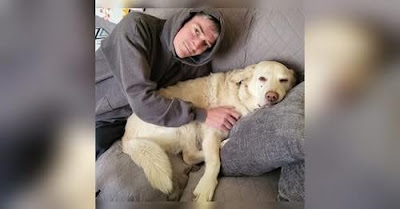Michael James Tighe, a 2007 graduate of Thomas Jefferson High School in Pittsburgh, Pennsylvania, passed away on May 21, 2025, at the age of 35. His death marks the end of a life that, though not without adversity, was lived with a profound sense of courage, determination, and joy. Michael’s story is not just that of a man who overcame physical challenges—it is the narrative of a devoted son, a loving brother, an adventurous spirit, and a quiet force of optimism whose impact resonated deeply in the Jefferson Hills community and beyond.
Michael Tighe’s name may first appear to many as a footnote in an obituary, but to those who knew him—and to those who come to know him through his legacy—it will always stand as a symbol of unwavering resolve, vibrant curiosity, and selfless love. Alongside him in this profound narrative are his devoted parents, James “Jim” and Sandy Tighe; his sister, Kelly (Rob) Lips; his brother, Sean Tighe; his cherished nephew, Ryan; and a wider constellation of family and friends whose lives were enriched by Michael’s presence.
Born on June 23, 1989, in Pittsburgh, Michael’s life was rooted in the close-knit town of Jefferson Hills. From his earliest years, it was clear that he was not only bright but inquisitive—a young man driven not by convention but by a thirst to understand how things worked. This trait manifested strongly during his years at Thomas Jefferson High School, where Michael emerged as a standout student within the Class of 2007. His intellectual curiosity led him to pursue a specialized education in computer drafting at the Pittsburgh Technical Institute (P.T.I.), where he earned an associate’s degree in a field that would become both his profession and his passion.
It is often said that careers are an extension of personality. In Michael’s case, his work as a computer draftsman at Elliot—a position he held with dedication for a full decade—reflected the hallmarks of his character: attention to detail, methodical thinking, and a love for problem-solving. Elliot, a company known for its focus on energy-related machinery and technology, required precision and creativity from its team. Michael, by all accounts, brought both in equal measure. He became known not only for the quality of his work but also for the steadiness with which he approached it, even as he faced physical challenges that might have deterred a lesser spirit.
Those challenges, while not enumerated in clinical detail, were part of Michael’s reality—and yet, they never defined him. Instead, he crafted a life where limitations were met with innovation, and difficulties were confronted with humor and verve. Michael’s physical condition, which required the use of a wheelchair, might have kept others grounded. But for him, it simply meant reimagining the tools of adventure. He customized go-karts to suit his wheelchair, raced through the outdoors on dirt bikes and quads, and, when the terrain required a different kind of ingenuity, cruised the streets on electric scooters. He lived not only boldly, but defiantly, never allowing circumstance to dictate the terms of his joy.
Integral to this joyful rebellion was Buster—Michael’s dog, friend, and confidant. More than a pet, Buster was a co-adventurer in every sense. Whether joining Michael for rides through the neighborhood or resting at his side after a long day, Buster offered companionship that was constant and unconditional. Friends and family recall their outings fondly, often punctuated by humorous moments—such as the times Buster, perhaps overwhelmed by the excitement, needed a ride home. These anecdotes, small in scale but immense in sentiment, paint a portrait of a man who understood the value of companionship and the pleasure of small joys.
Michael’s social circle, including close friends like Chris and Puckey, was an essential part of his world. Together, they built a community not only of support but of laughter. Their time together—casual outings, spirited conversations, and shared mischief—formed a crucial part of Michael’s life outside of work and family. These friendships were not superficial, nor were they defined by pity or obligation. Instead, they were rooted in mutual respect and admiration for Michael’s fearless embrace of life and his infectious sense of humor.
Yet if there was one relationship that truly defined the emotional center of Michael Tighe’s life, it was the one he shared with his mother, Sandy. Described lovingly as “two peas in a pod,” their bond was marked by closeness, understanding, and a deep reservoir of mutual care. Sandy, by all accounts, was not merely a caregiver but a companion in the most holistic sense—a partner in life’s day-to-day rhythm, in celebration and in hardship. Their connection stood as a testament to the enduring strength of family ties, and to the power of love that is patient, unconditional, and unshakably loyal.
As a brother, Michael brought the same warmth and loyalty to his relationships with Kelly and Sean. Their sibling bond, forged in childhood and strengthened through adulthood, was characterized by support and camaraderie. For his sister Kelly and her husband Rob Lips, Michael was more than a relative—he was a consistent presence and a source of joy. As an uncle to Ryan, Michael became a mentor of the best kind: someone who lived by example, who refused to let adversity dictate possibility, and who always had time to make a child laugh or inspire a dream.
The broader family network—comprised of aunts, uncles, cousins, and lifelong friends—formed a community that both supported and was supported by Michael. His presence, whether at family gatherings or in quiet one-on-one conversations, was often marked by an attentiveness that made others feel seen and valued. He possessed a rare ability to connect, to listen, and to encourage. In this way, his death is not only a private loss for his immediate family but a communal one, echoing through circles of kinship and friendship.
A memorial for Michael Tighe is scheduled for Tuesday, May 27, 2025, at Jefferson Memorial Funeral Home on Curry Hollow Road. Visitation will take place from 2:00 to 7:00 p.m., culminating in a prayer service at 7:00 p.m. This gathering will no doubt be filled with both tears and laughter, as those who knew Michael share memories and celebrate the indelible mark he left behind. A private burial will be held at a later time—an intimate farewell for a life that touched so many.
The family’s request that memorial contributions be made to the Children’s Hospital of Pittsburgh offers another window into Michael’s character. It is a gesture that mirrors his compassion, suggesting that even in death, his desire to support others, particularly the vulnerable and the young, continues. Children’s Hospital of Pittsburgh—an institution that provides critical care and innovative treatments—will be a fitting recipient of gifts given in Michael’s name. It reflects not only his own medical journey but his enduring empathy and his commitment to a better future for others.
The death of Michael Tighe comes at a moment in history when society is increasingly attentive to the lives of those who live with disability, not as objects of pity, but as full participants in the richness of human experience. Michael’s life exemplifies what can be achieved not in spite of adversity, but through the courage to meet it head-on. He exemplified what many disability advocates have long argued: that inclusion, adaptation, and self-expression are not merely possibilities, but rights worth fighting for.
In that context, Michael’s story takes on an even broader significance. His go-kart modifications, his scooter rides, his dirt bike adventures—all of these speak to a spirit that refuses to be hemmed in by the boundaries others might impose. These were acts of joy, yes—but also acts of resistance against a world that too often underestimates those who live with physical challenges. In this way, Michael Tighe joins a lineage of individuals who, through the power of example, broaden the definitions of possibility.
His ten years at Elliot underscore the importance of workplace inclusion, of recognizing and supporting talent wherever it may be found. The field of computer drafting, especially as applied in industrial and technological contexts, demands sharp thinking, precision, and the ability to visualize complex systems. That Michael not only worked but thrived in such a field speaks volumes about his abilities—and about the necessity of creating environments where talent is recognized regardless of physical form.
As communities prepare to gather for his memorial, they do so not merely to mourn but to reflect, to celebrate, and to carry forward the lessons of Michael’s life. For his parents, Jim and Sandy, this means finding a way to hold both the grief of loss and the gratitude of memory. For his siblings and nephew, it means continuing the traditions, values, and dreams he nurtured. For his friends, it means recalling the laughter, the loyalty, and the unshakeable bond they shared. For the larger community, it means honoring a life that modeled perseverance, kindness, and integrity.
Michael Tighe lived boldly. He laughed freely. He gave generously. And though he is gone, the echo of his presence will endure—not just in memories, but in the lives shaped and inspired by his example. His story, told in full, is a powerful reminder that heroism comes in many forms—and that sometimes, it arrives quietly, riding a scooter with a dog named Buster by its side, conquering trails not for glory but for the simple thrill of being alive.


Leave a Reply